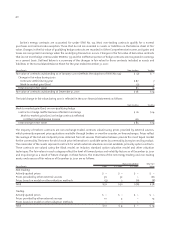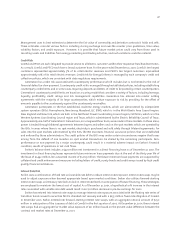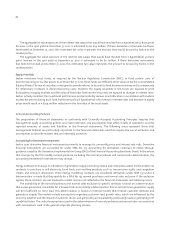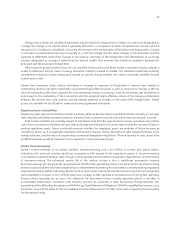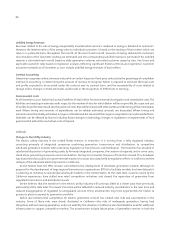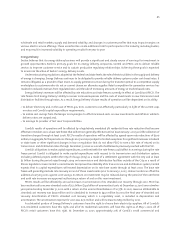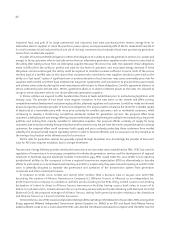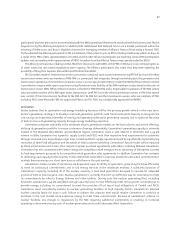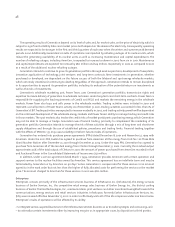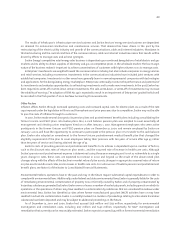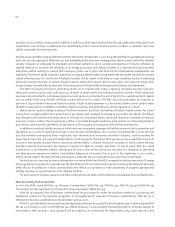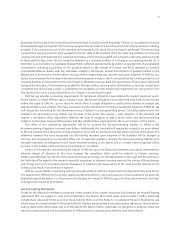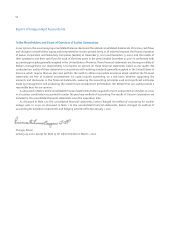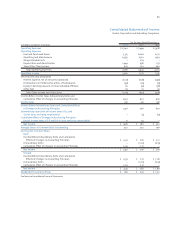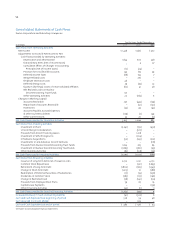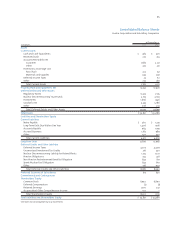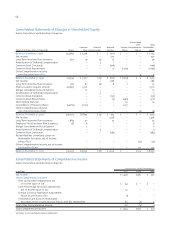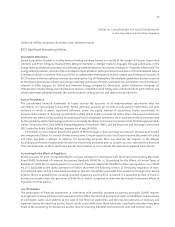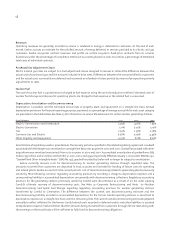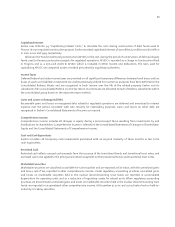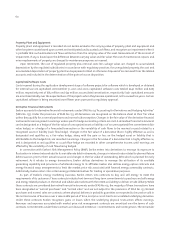ComEd 2001 Annual Report Download - page 52
Download and view the complete annual report
Please find page 52 of the 2001 ComEd annual report below. You can navigate through the pages in the report by either clicking on the pages listed below, or by using the keyword search tool below to find specific information within the annual report.
50
activities in 2002. Exelon cannot predict whether it will incur other significant liabilities for any additional investigation and
remediation costs at these or additional sites identified by Exelon, environmental agencies or others, or whether such costs
will be recoverable from third parties.
Security Issues and Other Impacts of Terrorist ActionsThe events of September 11, 2001 have affected Exelon’s operating procedures
and costs and are expected to affect the cost and availability of the insurance coverages that Exelon carries. Exelon has initiated
security measures to safeguard its employees and critical operations and is actively participating in industry initiatives to
identify methods to maintain the reliability of its energy production and delivery systems. It is expected that governmental
authorities will be working to ensure that emergency plans are in place and that critical infrastructure vulnerabilities are
addressed. The electric utility industry is proposing security guidelines rather than government mandated standards to protect
critical infrastructures. It is not known if Federal standards will be issued to the electric or gas industries. Exelon is evaluating
enhanced security measures at certain critical locations, enhanced response and recovery plans and assessing longer term
design changes and redundancy measures.These measures will involve additional expense to develop and implement.
The NRC has placed all nuclear generating plants on its highest alert status, requiring increased security measures,
enhanced communication with authorities at all levels of government and enhanced physical barriers. These additional
measures are estimated to cost between $600,000 and $900,000 annually for each of Exelon’s ten operating plants. Exelon
can not predict how long the NRC will keep nuclear plants on this status. The NRC also has undertaken an initiative to
perform a “top to bottom” review of nuclear security in light of the September 11, 2001 events. Exelon cannot predict when
the NRC review will be completed or whether additional actions and expenditures will be required as a result.
Exelon carries nuclear liability insurance. The Price-Anderson Act limits the liability of nuclear reactor owners for claims
arising from a single incident. The current limit is $9.5 billion and is subject to change to account for the effects of inflation
and changes in the number of licensed reactors. Through its subsidiaries, Exelon carries the maximum available commercial
insurance of $200 million. The remaining $9.3 billion is provided through mandatory participation in a financial protection
pool. Exelon cannot predict the effects on operations of the August 2002 expiration of the Price-Anderson Act.
In addition to nuclear liability insurance,Exelon also carries property damage and liability insurance for its properties and
operations. As a result of significant changes in the insurance marketplace, due in part to the September 11, 2001 terrorist
acts, the available coverage and limits may be less than the amount of insurance obtained in the past, and the recovery for
losses due to terrorists acts may be limited. Exelon is self-insured to the extent that any losses may exceed the amount of
insurance maintained. Nuclear Electric Insurance Limited (NEIL), a mutual insurance company to which Exelon belongs,
provides property and business interruption insurance for Exelon’s nuclear operations. In recent years, NEIL has made
distributions to its members. Exelon’s distribution for 2001 is $69 million, which was recorded as a reduction to Operating
and Maintenance expense on Exelon’s Consolidated Statements of Income. Due in part to the September 11, 2001 events,
Exelon cannot predict the level of future distributions, although they are expected to be lower than recent levels.
Exelon does not carry any business interruption insurance other than the NEIL coverage for nuclear operations. Damage
to Energy Delivery’s properties could disrupt the distribution of its and Generation’s product and significantly and adversely
affect results of operations. Exelon cannot predict the effects on operations of the availability of property damage and
liability coverage or any disruptions to its delivery facilities.
For a discussion of nuclear insurance and other contingencies,see Note 20 of the Notes to Consolidated Financial Statements.
New Accounting Pronouncements
In 2001, the FASB issued SFAS No. 141, “Business Combinations” (SFAS No. 141), SFAS No. 142, SFAS No. 143, and SFAS No. 144
“Accounting for the Impairment or Disposal of Long-Lived Assets” (SFAS No. 144).
SFAS No. 141 requires that all business combinations be accounted for under the purchase method of accounting and
establishes criteria for the separate recognition of intangible assets acquired in business combinations. SFAS No. 141 is
effective for business combinations initiated after June 30, 2001.
SFAS No. 142 establishes new accounting and reporting standards for goodwill and intangible assets. Exelon adopted SFAS
No. 142 as of January 1, 2002. Under SFAS No. 142, effective January 1, 2002, goodwill recorded by Exelon is no longer subject to
amortization. After January 1, 2002, goodwill will be subject to an assessment for impairment using a two-step fair value


